
Author: Zen, PANews
Recently, Web3 restaurant loyalty and payment platform Blackbird announced that it has successfully raised $50 million in Series B financing. Against the backdrop of a long-term downturn in the primary market, this high amount of financing undoubtedly demonstrates the crypto industry's expectations for the large-scale implementation of consumer-level applications, and also reflects the confidence of many top crypto investment institutions in the prospects of the project.
In the traditional catering market, high intermediary commissions and various service charges have become an unbearable burden for many small and medium-sized restaurants. This dilemma has prompted the industry to urgently find new solutions. At the same time, the cryptocurrency field is in urgent need of truly C-end products and feasible use cases. The two fields, each facing challenges, seem to have the opportunity to complement each other's shortcomings through deep integration.
So, what exactly is Blackbird, based on blockchain and cryptocurrency technology, doing, and what is its potential?
Received $85 million in financing, targeting the huge consumer market in the catering industry
Web3 restaurant loyalty and payment platform Blackbird was initiated by Ben Leventhal and is positioned as a loyalty and payment solution for the restaurant industry. Leventhal has more than 20 years of experience in the food and technology industry. As early as 2005, he co-founded the food information website Eater, which initially focused on New York City's dining and nightlife scenes and was later acquired by digital media company Vox Media in 2013. In 2014, Leventhal co-founded Resy, an online restaurant reservation platform, which was acquired by American Express in 2019.
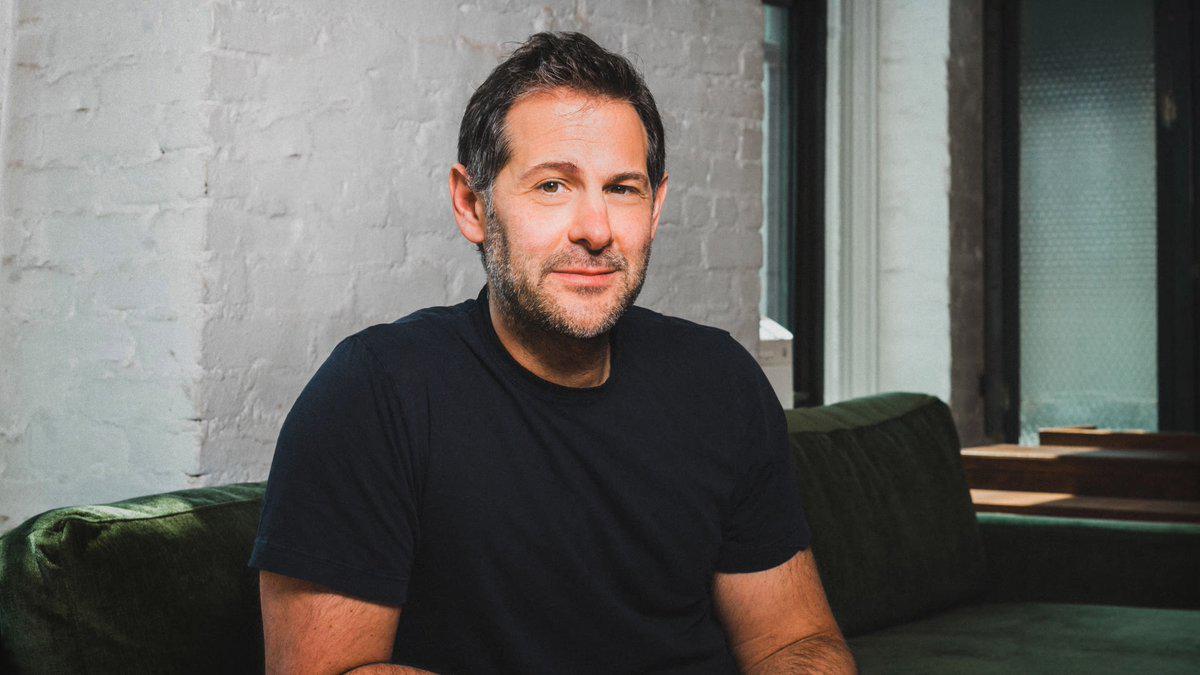
After years of working in the restaurant industry, Leventhal gradually realized the limitations of traditional loyalty and reservation systems. Although they can bring short-term traffic, they cannot truly establish a "deeply connected" long-term relationship between restaurants and diners. Leventhal believes that in order for the restaurant industry to achieve this goal and achieve economic sustainability, it must ensure that restaurants can retain more commercial value and build a reward and loyalty ecosystem. This is where Blackbird came from and the problem the platform wants to solve.
Food is the primary need of the people. The trillion-dollar catering economy is the most basic and largest consumer sector, and is also an ideal "test field" for the cryptocurrency industry to achieve large-scale adoption. Therefore, Blackbird, which aims to break through from the consumer application end and is based on blockchain and cryptocurrency technology, is also highly anticipated and favored by crypto venture capital. According to public information, Blackbird has received a total of approximately US$85 million in financing since its establishment in 2022:
- In October 2022, Blackbird announced the completion of a $11 million seed round of financing , led by Union Square Ventures, Shine Capital, and Multicoin Capital;
- In October 2023, Blackbird announced the completion of a $24 million Series A financing round , led by a16z Crypto, with participation from QED, Union Square Ventures, Shine, Variant and several restaurant groups;
- In April 2025, Blackbird announced the completion of a $50 million Series B financing round , led by Spark Capital and participated by Coinbase, a16z crypto and others. Leventhal said that the funds will be raised in the fourth quarter of 2024, and refused to disclose the implied valuation of this round of financing.
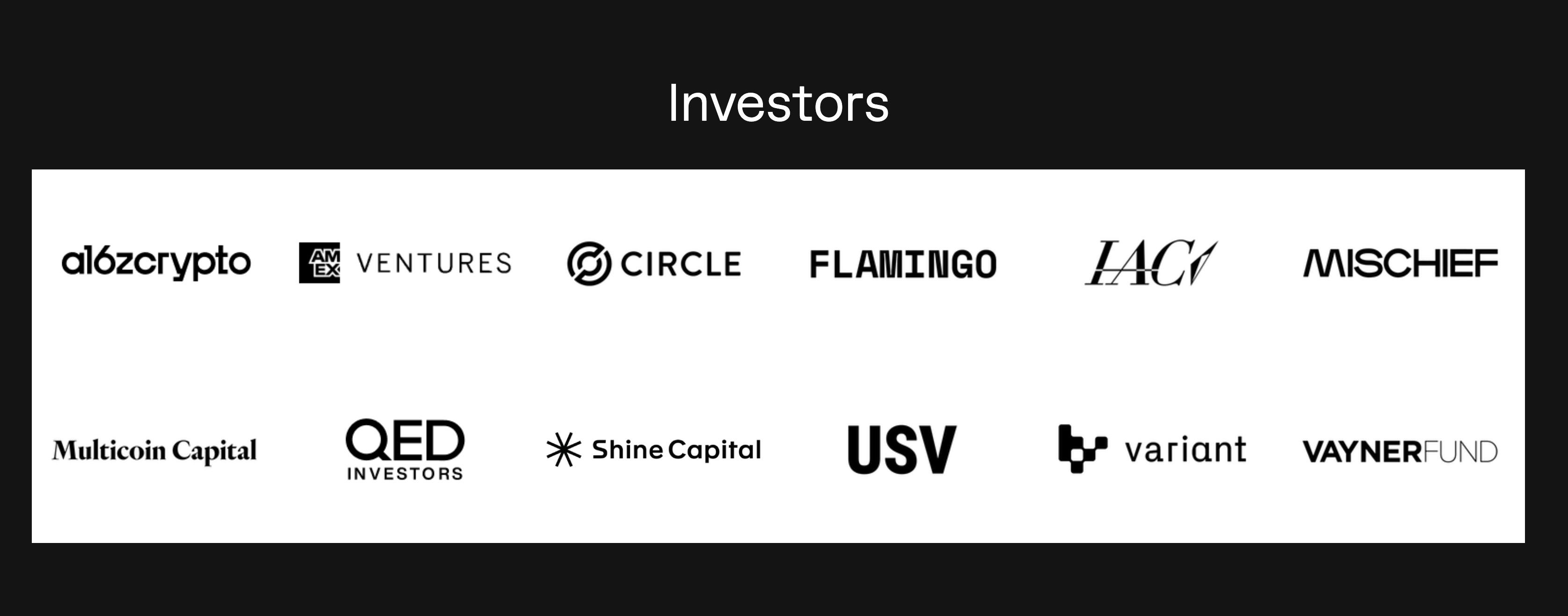
Arianna Simpson, general partner of a16z, believes that the restaurant industry is made up of millions of local small business owners around the world, and these restaurants are completely controlled by technology platforms, which can extract a large commission from the restaurant's profits, and this proportion is often growing. This is where blockchain can play a role, that is, to improve the profit structure. She said: "Ben Leventhal's vision is to build a network owned by restaurants and diners themselves, and this can only be achieved by blockchain."
Flynet mainnet is tailor-made for the catering industry with no intermediaries and low costs
One of Blackbird's main goals is to eliminate unnecessary intermediaries, including payment processors and other service providers that sit between restaurants and customers. Leventhal estimates that restaurants lose an average of 3% to 5% of their revenue to third parties, who don't create enough value. Therefore, by building a blockchain-based platform, Blackbird seeks to create a more direct connection between restaurants and customers, reducing costs and improving the overall dining experience.
On February 27, 2025, Blackbird announced the official launch of the Flynet mainnet. Flynet is built on Layer 3 of Coinbase's Base chain, aiming to move the restaurant payment and membership reward system to the blockchain, realizing a new payment and incentive model of "disintermediation" and "low cost".
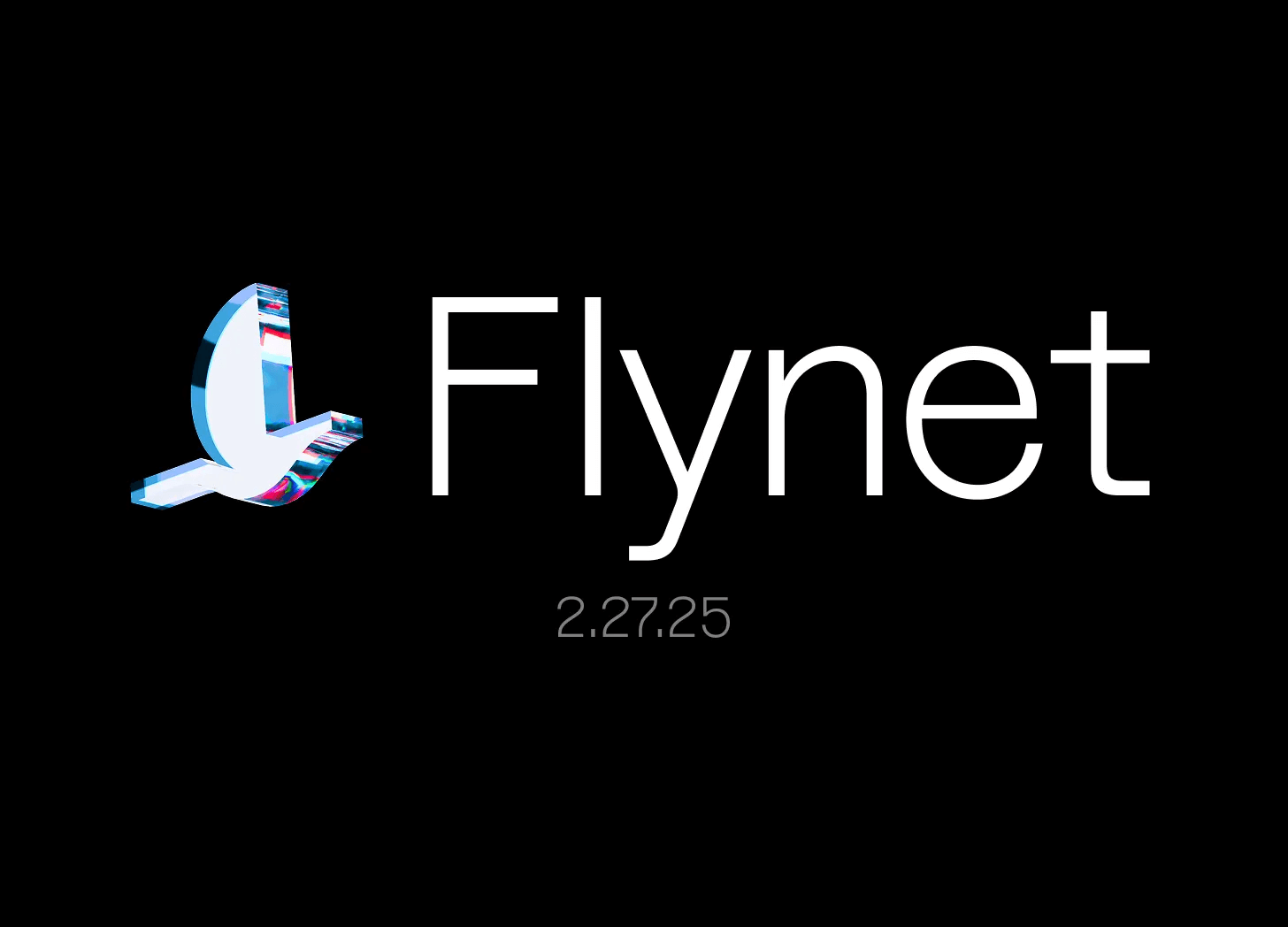
Flynet is a transaction network created by Blackbird specifically for the restaurant industry. Blackbird will build a rewards and loyalty ecosystem based on it to optimize the connection between restaurants, restaurant customers and restaurant employees in the restaurant industry, and record any activities that occur between any two parties. According to Ben Leventhal, Flynet will have four core advantages:
- Cutting intermediary costs: Traditional credit card processing fees are as high as 3.75% or more. Flynet uses a fixed rate of 2%, and immediately returns 1.5% of the revenue to the restaurant for customer acquisition and retention.
- Data autonomy returns: Restaurants and consumers can master and share consumption data on demand, helping restaurants gain in-depth insights into customer preferences and improve marketing efficiency;
- Seamless modern experience: With the Blackbird App, customers no longer need to carry physical cards or wait for bills. They can complete the checkout by scanning the QR code or paying with one click, truly achieving on-chain checkout in seconds;
- Unlocking a new loyalty economy: Flynet supports a tokenized points system across restaurants. Restaurants can customize reward programs based on on-chain behavior and incentivize high-frequency users through exclusive experiences (such as hidden menus and celebrity chef interactions).
As a decentralized network, it is designed to be ultimately controlled by its network users, the holders of Flynet's native token $F2. $F2 is the native token of the Flynet mainnet, used to pay on-chain gas fees and carry governance rights. The team plans to airdrop 13% of the token supply to early users and restaurants, and the remaining 87% to internal staff, vaults, and subsequent growth stage participants. The previously designed $FLY tokens are still used as loyalty points within the Blackbird app, which can be used to deduct meal expenses and redeem platform benefits.
In addition, when Flynet went online, Blackbird also launched a developer portal, inviting ecological partners and developers to build more application scenarios based on the network, including data visualization, data market, consumer market tools, third-party access and marketing tools, etc.
Blackbird Club: A tiered loyalty program that is different from the points model
At the same time as announcing the $50 million Series B financing , Blackbird also announced the launch of Blackbird Club, a tiered loyalty program designed to reward the most loyal users, aiming to replace simple point redemption with surprises and exclusive experiences. Members will receive generous benefits, including reservation guarantees, exclusive event pre-sales, and secret benefits such as hidden menu tastings and special sessions for friends and family.
"We built the club with the goal of creating great restaurants and great guests," said Blackbird, adding that the first participating restaurants include Gjelina, La Tête d'Or and Barbuto in New York; SPQR, Frances and Octavia in San Francisco; and Leon's, Melfi's and Renzo in Charleston.
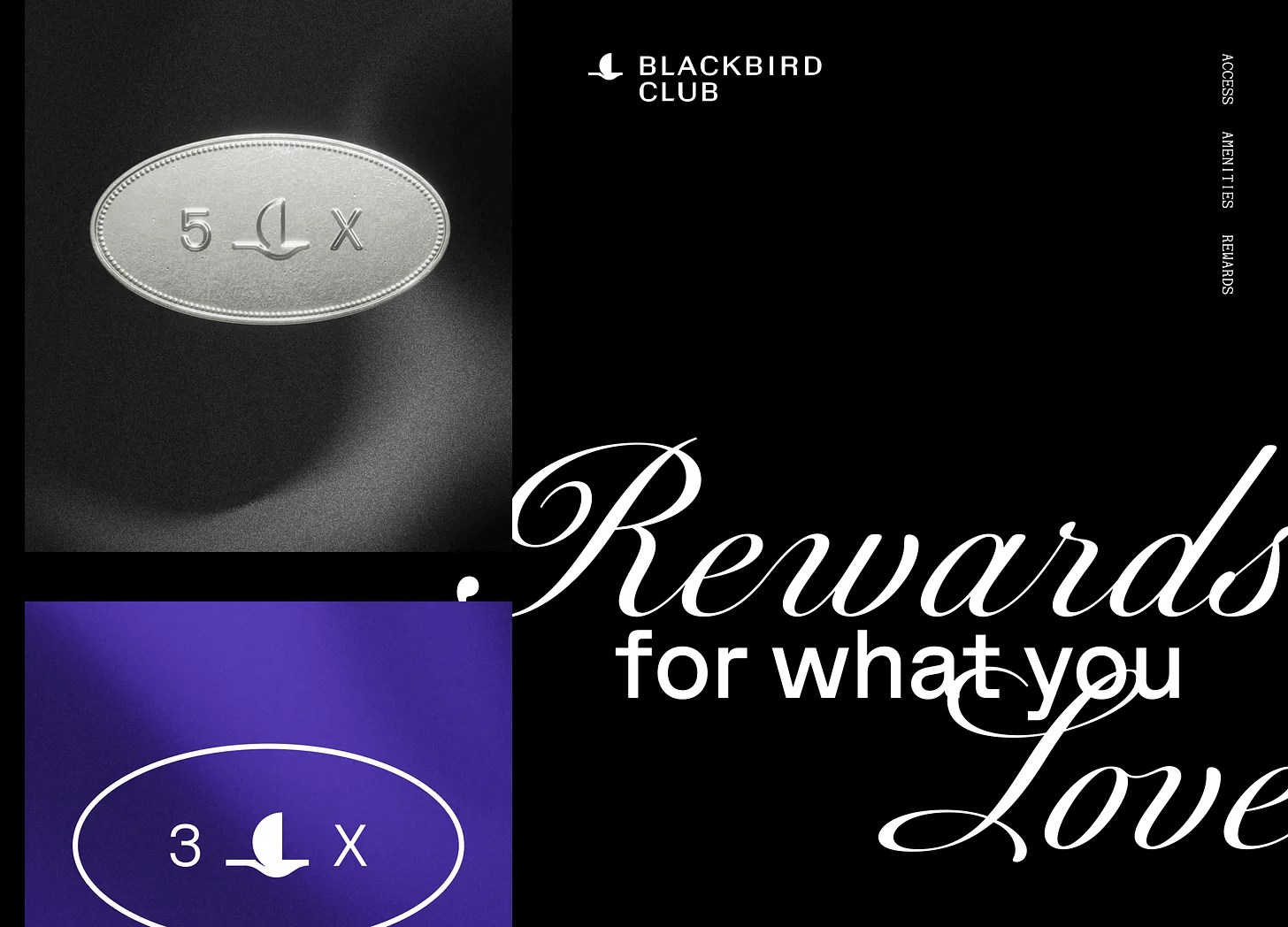
Traditional restaurant membership systems are usually based on the "credit card points accumulation" and "consumption rebate" model. The more a user consumes, the more points they accumulate, which can be used to redeem restaurant coupons, discounts, etc. This model is called transactional loyalty. The core of this model is "how much money you spend, how much reward you get", which is essentially a reward for "money" rather than "relationships".
The concept of Blackbird Club is Experiential recognition, which believes that what really makes customers feel "welcome" and "special" is not the points themselves, but whether they can participate in the restaurant culture and feel emotional connection and identity recognition. Blackbird Club plans to achieve this transformation through three pillars of rewards, access and convenience, and two membership levels, Blackbird Club 3X and Blackbird Club 5X - considering both the amount of consumption and the frequency of user visits and community contributions. It will pay more attention to whether you are part of the restaurant culture, not just the thickness of your wallet.
The essence of Blackbird is that it transforms loyalty from a tool into a cultural bond. By combining Web3 technology with the emotional experience of dining, it makes "eating" humane, respectful, and community-oriented. Blackbird also proposed that it will launch a version for practitioners in the future to motivate groups that are neglected from the perspective of the traditional "loyalty system" and provide exclusive rewards and recognition for chefs, waiters, and restaurant managers. Blackbird emphasized: "Those who entertain guests attentively should also be entertained well."
Web3 loyalty program has great potential but is difficult to implement?
User loyalty has always been one of the most important issues for major brands when competing for consumers. Especially in the catering industry, when taste and quality control are difficult to make significant differences, businesses often use model innovation and marketing strategies to create a novel and pleasant consumer experience, thereby establishing a deeper emotional connection with consumers.
Take Luckin Coffee as an example. Its "users are members" operating model has overturned the traditional points system, lowered the threshold for participation, and greatly increased the user reach rate. By regularly pushing limited-time discounts and guiding friends to share rewards, the user repurchase rate has also been effectively increased. In addition, joint cooperation between brands has also become a powerful means to enhance user freshness and brand exposure. Luckin's cross-border joint ventures with Moutai and Tom and Jerry have sparked heated discussions and become phenomenal events; and the recent collaboration between McDonald's and Minecraft has also been very popular on social media due to its creativity and interactivity.
In contrast, user loyalty programs in the Web3 world seem to have not yet found a truly viable path. Starbucks Odyssey, the once highly anticipated NFT loyalty program of Starbucks, was eventually terminated in March 2024. The failure of the project reflects its complex participation process, vague value proposition, and the significant decline in mainstream users' interest and awareness of digital collections after the NFT craze subsided. This also shows that simply giving users the right to "own" NFTs is far from enough to establish a truly sticky loyalty system.
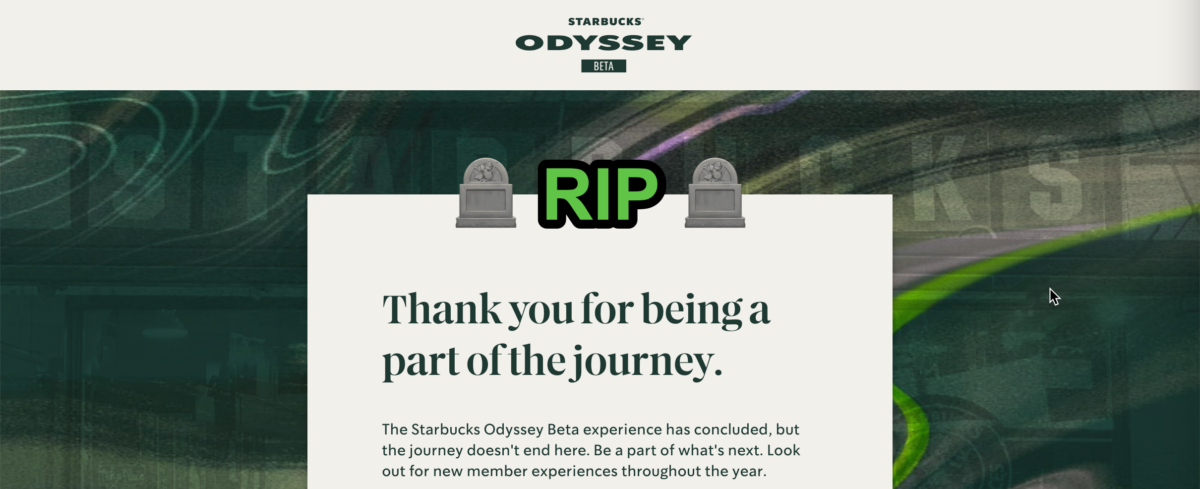
In this regard, Jesse Walden, founder and managing partner of Variant, proposed that a truly sustainable loyalty ecosystem should be like Blackbird, based on a decentralized trading network, with every consumer behavior on the chain, and incentives and governance through native tokens, thereby forming a network effect and long-term stickiness. In contrast, Odyssey only issues NFTs in a one-way manner, lacks on-chain interaction and token mechanisms, and is difficult to inspire users' enthusiasm for continued participation and community co-building.
Of course, for Blackbird, which is still in its infancy, it will still have to face realistic challenges in the future, such as regulatory uncertainty, market volatility, and the potential erosion of the core value of the project by currency price fluctuations and speculative behavior. Moreover, in the context of the maturity of the traditional loyalty operation model and the increasingly fierce competition, it is still unknown whether Blackbird can truly have long-term competitiveness. Even more worth thinking about is whether blockchain technology is really an indispensable underlying infrastructure for such systems, which is also widely controversial.
As Blackbird founder Ben Leventhal admitted: "I don't think it has to be built on a blockchain." He said that Visa's network also follows similar principles to Flynet to some extent, and does not apply blockchain.
"We do believe that over time there are things that are going to be significant opportunities, and those opportunities will be based on on-chain," Leventhal said, adding that those opportunities include how Blackbird and restaurants store customer data and activity, and also relate to its future vision - that every restaurant customer will eventually become a "shareholder" in Blackbird.











